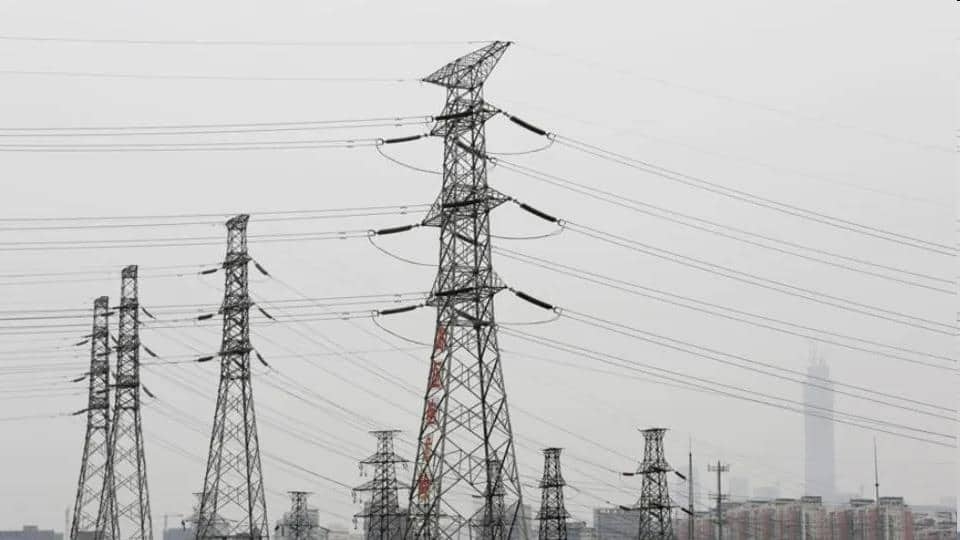India recorded an all-time high peak power demand of 204.65 GW on Thursday. Power demand is skyrocketing as a result of the current heat wave affecting large parts of the country.

How India's power sector is planning to reduce the coal shortage
Three of India's most industrialised states plan to import 10.5 million tonnes of coal in the coming months. Maharashtra plans to import 8 million tonnes for blending purposes, while Gujarat will place orders for 1 million tonnes next week.
"During the current month of April 2022 (up to and including April 28 till 14:50 hrs), the peak demand met during the day increased by 12.1 per cent to 204.653 GW from 182.559 GW during the same period the previous year," said the Power Ministry in a statement.
On Tuesday, the maximum all-India power demand was met, or the highest supply in a day was at a record level of 201.06 GW. The peak power supply had surpassed last year's maximum demand of 200.53 GW on July 7th, 2021.
Experts believe that the power demand will rise further in the coming days as the weather department has predicted that the heatwave sweeping through the country will intensify in the next five days.
The Indian Meteorological Department confirmed that this year's March was the hottest in over a century. Moreover, the country is also facing its highest power cuts in 6 years.
An intense heatwave broiled Delhi on Wednesday, with the Safdarjung observatory recording a maximum temperature of 43.5 degrees Celsius, the highest in April in 12 years.
The national capital recorded a maximum temperature of 43.7 degrees Celsius on April 18, 2010. The all-time high temperature for the month was 45.6 degrees Celsius, recorded on April 29, 1941.
Further, in a recent report, Nomura stated that if coal supplies do not improve, it could lead to a stagflationary shock, which India's economy, still recovering from the after-effects of the COVID-induced lockdown shock, can ill afford. The report added that nearly 100 out of 173 power plants have critical coal stocks, which is less than 25 per cent of normative levels.
To meet the demand
The Indian Railways has planned to cancel over 650 passenger trains to allow for faster movement of coal carriages as the nation scrambles to replenish depleting inventories at power plants in a bid to avoid a full-blown power crisis.
Sources from the railways told CNBC-TV18 that 657 passenger trains, including 500 mail and express train trips and 148 commuter train trips, are to be cancelled to prioritise the movement of coal rakes. The railways have also planned to increase the passage of coal rakes over the next two months.
"The measure is temporary and passenger services will be restored as soon as the situation normalizes," said Gaurav Krishna Bansal, an executive director at Indian Railways, was quoted by Bloomberg as saying.
The number of trains used by Indian Railways to transport coal has decreased by 8.4 per cent per day. While around 453 trains are required by utilities, the number of trains available from April 1 to 6 was 379 per day, sources said.
Increase coal imports
The power ministry has asked utilities to increase coal imports for blending to 36 million tonnes.
The Union Power Ministry has recommended the import of coal for blending up to 10 per cent to ensure adequate stock in the next few months, but due to this blending of imported coal, the generation cost is likely to increase by 30 to 40 per cent.
Three of India's most industrialised states plan to import 10.5 million tonnes of coal in the coming months as officials scramble to stop widespread power cuts, a move that could push global coal prices to new highs, Reuters reported.
Maharashtra plans to import 8 million tonnes for "blending purposes," while Gujarat will place orders for 1 million tonnes next week.
The Tamil Nadu government said the state was targeting importing 20% of its coal requirements, adding that it had already placed orders to import 1.5 million tonnes. The imports planned by these states would be higher than annual imports by state government-run utilities for blending in at least 6 years.
The three states are among the biggest power guzzlers in the country, cumulatively accounting for nearly a third of India's electricity demand in 2021, the report said.
Other states importing a total of 10 million tonnes of coal include Karnataka, Uttar Pradesh, Madhya Pradesh, Punjab, and Haryana.
Import coal from Russia?
India is the second-largest importer, consumer, and producer of coal in the world and has the world's fourth-largest reserves.
Russia is the world's third-largest coal exporter, it's expected that many buyers, especially in Europe and Japan, will stop importing fuel from Russia in the coming months as part of economic efforts to isolate Moscow, a report by Reuters stated.
India hasn't been a major buyer of Russian coal, but it will still be affected by the loss of Russian cargoes as other importers seek to replace Russian volumes with supplies from exporters such as Australia, Indonesia, and South Africa.
These three exporters are India's major suppliers and are likely to see increasing demand for their cargoes in the coming months.
South African cargoes are likely to flow to Europe as the country seeks to replace Russian coal, while Australian volumes are likely to increase to traditional north Asian buyers such as Japan and South Korea, the report added.
Russia is also a possible supply source, but costs are already high and buyers are likely to push for discounts.
As per media reports, India is being offered Russian coal at a discount of around $10 per metric tonne over Australia’s Newcastle thermal coal. The payment mechanism, timing, and deliveries are, however, under negotiation.